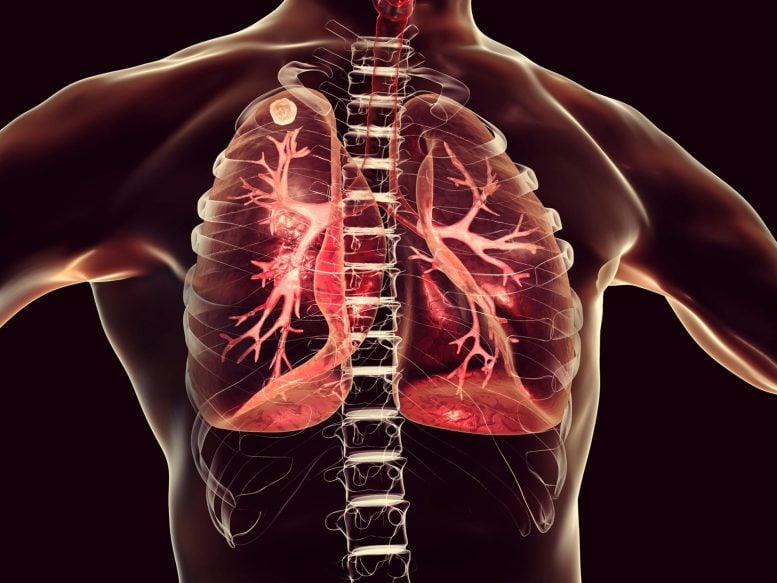
Some lung disease patients do worse than others. Could sleep be the cause?
According to a study conducted by University of California, San Francisco (UCSF) researchers, poor or disrupted sleep may have a greater effect than smoking history in individuals with progressive lung disease.
The study found that insufficient sleep can increase a COPD patient’s chance of a flare-up by up to 95% when compared to individuals who get sufficient sleep. These flare-ups, which manifest with increased breathlessness and coughing, may eventually result in irreparable lung damage, hasten the course of the disease, and increase mortality.
The research findings were published in the journal SLEEP. According to lead author Aaron Baugh, MD, a clinical resident at the UCSF Division of Pulmonary, Critical Care, Allergy and Sleep Medicine and the Cardiovascular Research Institute, these may partly explain why African American patients with COPD often do worse than white patients.
“African Americans are over-represented in low-income neighborhoods, where people are less likely to have good quality sleep. They may live in crowded spaces with multiple roommates and have less comfortable sleeping conditions, such as a couch, and they may work in a job with a varying schedule that lends itself to sleep disruption,” said Baugh, noting that research shows sleep deprivation is associated with a drop in infection-fighting antibodies and protective cytokines.
The researchers monitored 1,647 patients with proven COPD who were recruited in the nationwide, multi-center SPIROMICS study, which was established to track disease progression and assess treatment efficacy. The researchers examined the occurrence of flare-ups—defined as a temporary exacerbation of symptoms that need treatment—with self-reported information on sleep quality across a three-year period.
Poor Sleep Raises Risk of Flare-Ups From 25% to 95%
At the start of the study, the average age of the participants was 65 and the average stage of the disease was moderate. Over half of the participants (57%) were male; 80% were white and 14% were African American. All were current or former smokers, who underwent at least one sleep evaluation at enrollment. The researchers found that compared to participants with optimal sleep, those at the base level of poor sleep had a 25% increased chance of a flare-up within the next year, rising to almost 95% within the next year for those with the worst sleep.
This may amount to a more pronounced effect than the impact of smoking over a 40-year period, versus a 60-year period, said Baugh.
As expected, more African Americans reported poor sleep than did white participants: 63% versus 52%.
“While factors like health insurance coverage or respiratory hazards may play important roles in the severity of the disease, poor sleep may gain even more significance when African Americans’ social status improves,” said Baugh. “This can lead to a kind of paradox; in reducing one risk factor, a new risk factor – poor sleep – may take its place.”
Yet-to-be published data will show that African Americans have worse sleep even when socio-economic factors and severity of COPD are accounted for, Baugh said.
Senior author and pulmonologist Neeta Thakur, MD, of the UCSF School of Medicine, said that questions about sleep are often overlooked by physicians evaluating patients with COPD. “Sleep hygiene and sleep aids may significantly improve their health,” she said. “Sleep should be considered both in the clinic and at the wider community/neighborhood level, where the structural factors that contribute to worse sleep can be addressed.”
Reference: “Risk of COPD exacerbation is increased by poor sleep quality and modified by social adversity” by Aaron Baugh, Russell G Buhr, Pedro Quibrera, Igor Barjaktarevic, R Graham Barr, Russell Bowler, Meilan King Han, Joel D Kaufman, Abigail L Koch, Jerry Krishnan, Wassim Labaki, Fernando J Martinez, Takudzwa Mkorombindo, Andrew Namen, Victor Ortega, Robert Paine, Stephen P Peters, Helena Schotland, Krishna Sundar, Michelle R Zeidler, Nadia N Hansel, Prescott G Woodruff and Neeta Thakur, 6 June 2022, SLEEP.
DOI: 10.1093/sleep/zsac107
SPIROMICS was funded by the National Institutes of Health.
Never miss a breakthrough: Join the SciTechDaily newsletter.